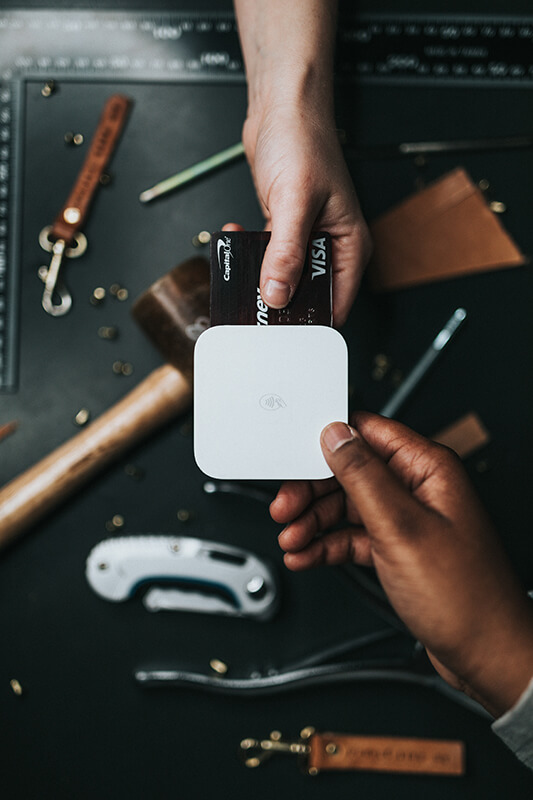
Life Hacks For Studying and Saving Money In College
 Life hacks make living so much easier and people rarely know how to make smart shortcuts. When you’re a student, you can feel overwhelmed really quickly. Everyone at some point in their educational life has felt overworked, burnt out, and has lost motivation. Because of that, we’ve compiled a list of life hacks for students that you can try out to make your life infinitely easier.
Life hacks make living so much easier and people rarely know how to make smart shortcuts. When you’re a student, you can feel overwhelmed really quickly. Everyone at some point in their educational life has felt overworked, burnt out, and has lost motivation. Because of that, we’ve compiled a list of life hacks for students that you can try out to make your life infinitely easier.
A lot of life hacks online aren’t really useful for students. We’ve carefully curated these lifestyle hacks because we care about how to make life easy for students. Whether you’re trying to save money, find better study habits, or overall just want to find the best hack, then keep on reading!

20 College Life Hacks
The start of your college life can be very nerve-wracking. There are so many things happening at once and it could be hard to know where to begin adjusting first. Going to college usually means moving away, moving to a different town or state, and living alone for the first time. Some useful hacks Concordia University Texas tell college students to put their phones in a bowl to amplify the speaker’s volume when their alarm goes off in the morning. They also advise students to fix a highlighter mistake using lemon juice. But Homework Help Global’s list is not your ordinary quick hacks for students. Here are some really useful tips for first-time college students.
1. Get enough sleep
Never underestimate the importance of having good sleep habits. Incoming college students might think it’s part of the college lifestyle to lose out on sleep but this is only true for those who don’t plan responsibly. Losing out on good sleep can be detrimental to your health. When your health is compromised, you won’t have a choice but to miss out on classes. College classes aren’t like your typical middle or high school classes where it’s easy to get back on track. College classes are longer and there are only a couple days in the week to attend them. It’ll be harder for you to keep up with requirements if you’re not staying healthy by getting enough sleep.
2. Plan things out
A great way to make sure you are keeping track of all your classes, requirements, and other events outside of school is to plan ahead. If you’re not utilizing some sort of planner or organizing schedule, there’s no better time than now. Learning how to plan responsibly is a great habit that will eventually translate into a good work ethic. Once you have a visual representation of your weekly schedule, it’ll be easier for you to get all your goals done.
3. Sit in the first row in class
The front row seats in class are so underrated. They’re arguably the best seats in class. This is a great life hack for students who are easily distracted. Sitting in front of the class means you only have a view of your professor and the lecture. There’s little to no leeway to not focus on anything but the lecture because your professor can easily spot you. This makes you accountable and forces you to be more attentive. You’re also less likely to be distracted by other students because they’re all sitting behind you.
4. Quiz yourself
The best hack to prepare yourself for quizzes and exams is to take practice tests. If you have a study buddy, it could be best to quiz each other. You and your study buddy can create questions for each other that will give the same effect of seeing your quiz’s questions for the first time. An even better way to elevate this hack is to time yourselves.
Homework Help Global actually has online quizzes and online exams services. This is one hack you can make whenever you have online exams coming up!
5. Stop cramming
Last minute study sessions should absolutely be a thing of the past. If you want a more sustainable way of studying, you should start spacing out your study schedule. Make sure you are allotting the right amount of time to get all your schoolwork done. Cramming might work for short-term retention of information, but if you truly want to understand your course material for long-term retention, you need to stop cramming.
6. Read more
Reading has become a lost art in recent years and students are more likely to consume short-form content and rarely read real books anymore. If you want to maximize your learning potential in college, there are plenty of self help books that you can try. Reading isn’t limited to your course material. Reading quite anything that interests you is a great way to practice information retention. It widens your vocabulary and can even help make you a better writer.
Not everyone can be a gifted writer and for a lot of students, it can be very difficult to do so. One amazing hack that you can try is to pay someone else to write your essays for you. Homework Help Global specializes in custom written essays so you don’t have to worry about them anymore.
7. Organize your class schedule
One of the most useful hacks you can use for college is learning how to make your class schedule work for your convenience. Luckily in college, you get more freedom to choose your own schedule. If you want to get the best classes, make sure you are registering as early as possible. With the right schedule organization, you can pack in all your classes and only have classes for 3 or 4 days a week. The rest of your days off can be used for making assignments or fulfilling a side project.
8. Read the syllabus
Your professors are more likely to favor you if you arrive in their classes prepared. Some students can skip on reading the syllabus before classes start and miss out on important first-day requirements. Your class syllabus will contain a lot of important information. You can see exam dates, assignments, and allowable absences. Different classes will most likely have different requirements so make sure to take note of them.
9. Use your phone wisely
Because cell phones have become such a necessity, rules about cell phone usage in class have changed over the years. Make sure you’re following the school rules on cell phone usage and if you are allowed to, make sure to use your phone wisely. Since you’re always seeing your phone’s lock screen, one hack you could use is to put your class schedule as your lock screen photo. When you’re adjusting to your new schedule, it can be easy to mix up times and classrooms during the first semester so have them handy in your phone to remind you easier.
10. Create a designated study space
According to Maryville University, it’s important to have a designated study space at home or at your dorm. While it’s fun to have a variety of places to study like in your college library or at a coffee shop, it’s always beneficial to have a space as well at home. It’s important to separate spaces for different activities at home. For example, if you study in bed, you’re more likely to feel sleepy because you’re used to that space being a time for rest. If you’re using a dining table as a study area, you might be more inclined to snack, which isn’t such a bad thing.
If you want to learn about foods that are beneficial to you while studying, check out our blog on Brain Food For Studying.

11. Always start with the most important or challenging task
One of the best life hacks for staying organized is having a daily checklist. This helps with motivation levels because you become a little more confident in yourself every time you tick off something in your checklist. To know the order to follow on your checklist, it’s advisable to start off with the task that will take up most of your time. If you only have a limited amount of time in the day for your tasks, starting with the most important or challenging is the best order of priority. You’re much more likely to finish simple tasks faster so they can take up whatever time is left after finishing your hardest tasks.
12. Keep your things clean and organized
Another thing that aids in your motivation level is having an organized room and bag. Keeping your things organized can help you feel like everything is under your control. College students can be under a lot of stress and pressure and can often feel like their lives are spiraling out of their control. When this happens, try to fix what you actually can instead of losing energy worrying about what you can’t.
If you’re low on motivation, you could benefit a lot from reading 14 Different Ways To Regain Motivation.
13. Ask more questions
For our more introverted readers, you might want to skip this hack but we advise not to. If you have problems with being sociable and speaking up, asking more questions in class is a great exercise to overcome this.
14. Take a break
It is advisable to not spend any more than 30 to 90 minutes studying. It can be easy to exhaust your brain power. This is precisely why cramming shouldn’t be part of your college lifestyle. Keep a sustainable momentum when studying and actually try to make it an enjoyable activity. A lot of students put off studying in their spare time because it can be boring and they’ve already spent a chunk of their time in classrooms. Try out different study methods and try to change your mindset on studying and give yourself breaks.
Watch an episode of The Homework Help Show and learn about one amazing study hack called the Pomodoro Technique.
15. Join study groups
Another way to make studying enjoyable is by joining study groups. You could learn a lot more from seeing other people’s perspective on lessons. If you’re a little shy in class and really can’t get yourself to ask your professor for clarification, you can ask help from your trusted study buddies.
16. Brain dump
A brain dump is a way to test yourself of the knowledge you were able to retain in class. To do a brain dump, write down everything you remember from a lecture without looking at your notes or syllabus. Literally, you dump the contents your brain was able to pick up. Once you’re done, you can assess which parts need reinforcement. You can now focus on parts of the lecture you’ve glossed over or forgotten.
17. Make alliances and be nice to everyone
You may not think of this as a hack, but college isn’t just a place for studying. This is when you make connections and start networking. You never know who you could end up working for or with in the future. It’s better to build connections early instead of burning bridges that could be detrimental to your career later on. It doesn’t hurt to smile more often, be more open to others, and friendly.
18. Attend social events
In addition to the 17th hack, your college or university will probably host a lot of events that will allow you to broaden your community. This is also a great way to exercise your communication skills. During your college life, you will be attending lots of parties and it’s important to be selective with the crowds you surround yourself with. Make sure you are attending social events that are beneficial to your social and educational life.
For more tips on elevating your communication skills, read our blog on How To Learn Communication Skills For School and At The Workplace.
19. Stay healthy
Having a fitness routine, making sure you are eating right, and staying healthy can do wonders for your memory and ability to do well in school. When you aren’t taking care of yourself and compromise your health, you could really fall behind in school.
For more ideas on what to eat when in college, read this blog on These Quick Dinners For Students To Make It Easy To Stay Healthy.
20. Minimize consuming coffee and alcohol
Consuming caffeine can help students but too much of it can’t be healthy either. A culture of caffeine-dependency is rampant in colleges and universities and while it can be unhealthy, it is also an expensive habit. Aside from caffeine, alcohol consumption also increases once you are in college. While everything in normal amounts is fine, make sure you are not overindulging in alcohol, caffeine, and even nicotine. This is one of the helpful life hacks you can always bring with you even after school. Make healthier lifestyle choices early on so as to not need reversing of ill effects later in life.

20 Simple Hacks To Save Money In College
1. Automate saving money
Almost everything can be automated these days, especially with online banking. If you’re a student who gets a monthly allowance or you have a job and get paid on a specific day, make sure the first thing you do is save money. A lot of young people who are first-time earners or get financial freedom for the first time in their lives tend to spend money as soon as it hits their bank account. By having your savings automated, you are only able to spend what is left after saving.
2. Plan your meals
Meal planning can save you a lot of money. College students are busy and they rarely have time to cook and so they resort to delivery services and eating out a lot. This habit can quickly burn through your wallet. If you’re able to cook in your dorm or apartment, make sure to utilize this option. Dedicate a Sunday to cooking and planning your meals for the week. It’ll also save you a lot of time within the week to get more school work done.
3. Learn how to budget
Budgeting isn’t exactly part of the school curriculum but is such an important lesson to learn. There are plenty of ways to budget. You can start sinking funds, have a binder where you save cash, allot certain amounts for specific activities, and more. What’s really important about budgeting is prioritizing your main bills and then finding out the amount you can spend for recreational activities. This way, you know exactly just how much you can spare for miscellaneous expenses.
4. Make a plan for paying off debt
Going to college can mean a lot of student debt in the future. Make sure you are making a plan on how to pay this off. After college, you’ll be faced with even more financial responsibilities. You need to prepare and pay off your initial debts before making any new loans.
5. Get a side job
Unlike high school, your schedule in college or university has a lot more wiggle room. You can choose your own schedule and pick your own classes. If you are lucky enough to properly organize your schedule, you can even have some days in the week off. This extra time could be spent making some extra money. There are plenty of side jobs students can make and it’s common for a lot of students to be working. Capitalize on your talents and gain experience even while you’re still in high school.
6. Use coupons
Keep an eye out for coupons online that can help you save a little money. 5 or 10% off here and there might not look like much, but if you’re wanting to save money, every single penny counts.
7. Check your statements
An important part of saving money is keeping track of it. There’s a higher chance of overspending when you fail to keep track of how much money you actually spend. If you own a credit card, always make sure you are checking your statements. Sometimes, we can be double-charged or wrongly charged for something and this can easily be overlooked and forgotten about when you don’t check your statements.
8. Make an emergency fund
As much as we don’t like to think about bad things happening in the future, it’s always better to be prepared. Have a rainy day fund onhand just in case you have some emergency situations that require you to go a little out of budget.
9. The 30-day rule
The 30-day rule is applied whenever you are thinking of a purchase but also want to spend. It’s easy to make impulse purchases when you have the money in hand, but that could mean money lost when it’s time to spend on necessities. If you’re thinking about making a big purchase, wait 30 days before you make a decision. If after the 30 days, you realize you actually need to make this purchase, then you can go ahead and do so. On the other hand, if after 30 days you no longer find the need for the purchase, then you have saved yourself some money.
10. Don’t immediately replace broken things
Try not to throw out things that can still be fixed. A lot of the time, people can get pretty lazy and get things fixed and would rather purchase a new replacement. For example, if you have a cracked phone screen, it is much cheaper to get a new LCD installed rather than just getting a new phone. The money saving tip is here to take care of your stuff and try to fix broken things instead of getting replacements.

11. Shop smart
One of the saving life hacks you should be aware of is shopping smart. That means exploring your options before making a purchase. Some websites can sell the same item but can have varying prices. Certain items can be cheaper to buy online or in store. Make sure you are weighing all your options before making a purchase.
12. Have less expensive habits
As a student, you should focus more on keeping a good GPA and focusing on your studies rather than trying to live above your means. Every once in a while, it’s good to spoil yourself, but if you truly want to save some money, lifestyle changes are necessary. Every few weeks, try to limit eating out and getting services done. Learn how to do your own self care rituals at home to save some money. Try to spend on quality items instead of buying cheaper stuff for the quantity.
13. Have non-spending days
Incentivize your saving habits and take note of non-spending days. Write down all your expenses in a day using a calendar and block off certain days when money doesn’t leave your account. By having a visual representation of your saving habits, you’ll become much more motivated to keep going.
14. Become financially literate
Learn all the ways you can save and invest your money. Students might not want to prioritize this, but the earlier you become financially literate, you can build wealth easier in the future.
15. Make a shopping list
A great way to save money is by making a shopping list and sticking to it. It is also advisable to not go grocery shopping when you’re hungry because you’ll tend to overspend. Become a smarter shopper by making sure you’re only purchasing the real necessities.
16. Pack a lunch
Instead of always eating out, try to pack a lunch and use the groceries you’ve bought. By sticking to a weekly food budget, you can save a lot of money. Eating out is good every once and a while and a lot of students don’t have a lot of time to cook. But if you try meal prepping and plan your meals, you can easily pack a lunch and save some money.
17. No upgrades unless necessary
When you have fully-functional electronic devices, try and take care of them as much as you can. Cellphones, laptops, and tablets make students’ lives easier. When you take care of your things, you’re less likely to break them and have the need to replace them. You can easily save so much money by not having to upgrade your devices every year a new model comes out.
18. Preloved Items
Thrifting has become quite popular these days because it’s a great way to practice sustainability. Explore buying preloved items instead of paying full price for new items. This can be utilized for furniture, clothes, and other items. As long as you’re shopping smart and making sure you’re buying from reputable sources and double checking if items are actually usable, you can find lots of treasures when shopping preloved items.
19. Borrow
To save some money, try and borrow things instead of buying. This goes for stuff that is probably only for one-time use. If there’s an event or occasion that calls for a specific attire that you don’t already own, try and enlist the help of friends and family. You can borrow certain items and clothes instead of buying an expensive outfit that you’ll probably only wear once.
20. Carry cash
When you can visually see your money instead of an amount online, you can have a clearer idea of just how much you have and can spend. There are also so many online fees nowadays that can easily stack up with time. You might not think carrying cash is one of everyday life hacks, but it actually is. Carry cash as much as you can so you can also actively save a lot of it.

5 More Studying Life Hacks For Students In School
Here are more student hacks that work from Mount Wachusett Community College.
1. Find Your Learning Style
There are four main learning styles that students have. The earlier you figure out which one works best for you, the better you can plan studying sessions.
● Auditory learning
For students who are auditory learners, hearing new information is the best. The hacks auditory learners can use are reading their notes out loud, listening to educational podcasts, and really tuning in to their professors during lectures.
● Visual learning
Seeing is believing for visual learner students. The hacks if you’re this type of learner are using diagrams, color coding your notes, and watching videos to better retain information.
● Kinesthetic learning
Students who are kinesthetic learners tend to thrive during labs and workshop classes. Trying to implement touch tactics might be challenging, but there are hacks around this. While you can’t always be “hands-on” for certain classes, reviewing notes or studying while moving or exercising could be an effective way to retain information better.
● Read or write
This is probably the most classic type of learning that is encouraged for students. If you’re the type of student who retains information better when reading and writing, you can benefit from extensive note taking and re-reading their notes to study.
2. Using Mnemonic Devices
Mnemonic devices basically make it easier for you to retain information. The hack is you can use songs, rhymes, and acronyms to remember important lessons.
3. Rewrite Your Notes
Similar to our brain dump hack, when you’re simultaneously listening to the lecture and making notes, your focus is split into two. After your lecture, rewrite your notes and try to add a little more information. A great hack for rewriting your notes is to make color codes. You can assign a specific color for most to least important parts of the lecture.
4. Create A Study Playlist
It might seem counterintuitive to be listening to music while studying but it can actually be effective. The best kind of music to listen to are instrumentals because songs with lyrics are the ones that can be distractive.
Luckily for you, Homework Help Global has actually produced the perfect LoFi Study Music that you can use to help you focus better.
5. Get Creative
There are plenty of DIY projects you can try out to liven up your study sessions. One hack that Learning Fundamentals advise students to try out is to create A Little Golden Book on a topic you are trying to understand. By creating a children’s book about a specific topic, it lets you understand it in the simplest way possible. Simple enough that an 8-year old can understand.
Being creative during study sessions can also just mean changing up your scenery, adding more doodles on your notes, and making it as fun and colorful as you can to make studying less boring.

Use The Best Hacks In School
There’s no better hack for school than finding easier ways to complete your assignments. With Homework Help Global custom-essay writing service, you can save a lot of time researching and worrying about your assignments. Get your PowerPoint presentations, book reports, and more done at Homework Help Global! It’s the best hack you’ll ever find.
Share:

